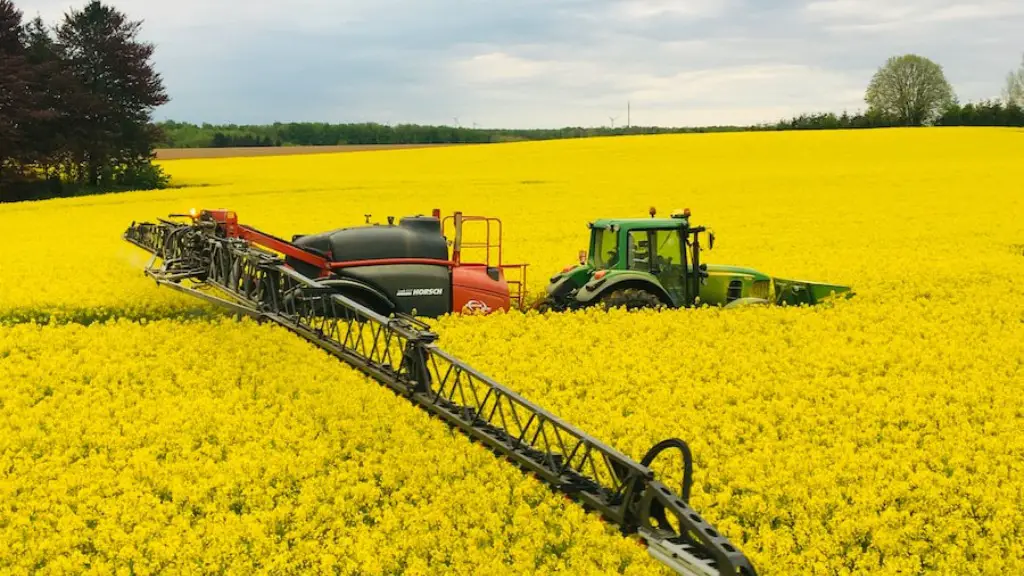Antibiotics are powerful drugs used to fight bacterial infections. However, in recent years, the overuse of antibiotics has become an increasing concern for the agricultural industry. This is because antibiotics are used in large quantities for non-therapeutic purposes, generally to speed up weight gain and prevent disease outbreaks in livestock.
Here, we will examine the use of antibiotics in agriculture and the challenges they present.
Effects of Antibiotic Overuse
The overuse of antibiotics in animal production has led to the creation of superbugs, antibiotic-resistant bacteria. This can be dangerous as it means that not even strong antibiotics can kill the bacteria. This makes it difficult to treat humans and animals suffering from bacterial infections. Additionally, the release of antibiotics into the food chain and environment can be detrimental to human and animal health.
Impact of Antibiotics on Animal Health
The use of antibiotics in animal production has seen to be beneficial for animal health. Antibiotics are used to prevent, treat and control diseases, as well as to increase feed efficiency and improve weight gain. However, the indiscriminate use of antibiotics can lead to health problems, such as the emergence of resistant microorganisms and the development of drug-resistant diseases.
Alternatives to Antibiotics
With the overuse of antibiotics posing significant risks to the environment and human and animal health, it is important to look for alternatives. Good husbandry practices, such as improved animal housing and nutrition, are key to reducing the use of antibiotics and improving animal health. Additionally, immune modulators, such as probiotics and prebiotics, can be used to modulate the immune system and reduce the need for antibiotic use.
Regulation of Antibiotics in Agriculture
Government regulations are in place to regulate the use of antibiotics in agriculture. One example is the European Union’s ban on the use of antibiotics for growth promotion in livestock. To ensure compliance with these regulations, farmers must exercise care when using antibiotics, and follow the advice of their veterinarians.
Benefits of Antibiotics in Agriculture
Despite the negative effects of the overuse of antibiotics in animal production, there are some benefits to the practice. For example, antibiotics are used to treat and prevent disease in livestock, reducing the need to cull animals. Additionally, antibiotics can be used to improve animal feed efficiency and weight gain, which can be beneficial to farmers.
Challenges of Reducing Antibiotic Use in Agriculture
One of the challenges of reducing antibiotic use in agriculture is the development of new drug-resistant bacteria. Additionally, the cost of switching to alternative treatments can be prohibitive for some farmers. Lastly, the lack of resources and education can limit the ability of producers to switch to alternative treatments.
Impact of Global Trade and Technology on Antibiotic Use in Agriculture
Global trade and technology have had an impact on the use of antibiotics in animal production. On the one hand, global trade has allowed for the transfer of technology from one region to another, which can lead to an increase in the use of antibiotics. On the other hand, the rise of online resources and communication tools has made it easier for farmers to access information on the risks of antibiotic use and alternative treatments.
The Role of Government in Regulating Antibiotic Use in Agriculture
The government plays an important role in regulating and controlling the use of antibiotics in agriculture. Governments can implement regulations and policies that restrict the use of antibiotics, as well as provide resources to educate farmers on the risks of antibiotic use and alternative treatments. Additionally, governments can work with producers to develop economic incentives and provide subsidies for the implementation of alternative treatments and improved husbandry practices.
Impact on Human Health from Antibiotic Use in Agriculture
The use of antibiotics in animal production can have an impact on human health. For example, the release of antibiotics into the environment can lead to the development of drug-resistant bacteria, which can be dangerous for humans and animals. Additionally, the consumption of meats, poultry and dairy products that contain antibiotic residues can lead to antibiotic-resistant infections in humans.
Strategies for Reducing Antibiotic Use in Agriculture
There are various strategies that can be employed to reduce the use of antibiotics in the agricultural industry. Improved husbandry practices, such as improved animal nutrition and housing, are key to reducing the need for antibiotics. Additionally, the use of alternative treatments, such as probiotics and prebiotics, can help to reduce the need for antibiotics. Lastly, government regulations and policies can be implemented to restrict the use of antibiotics in animal production.


